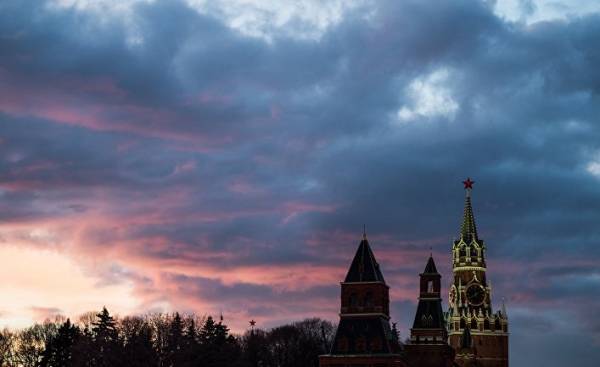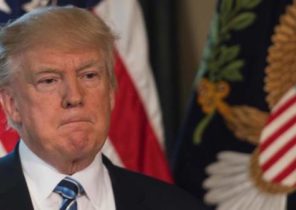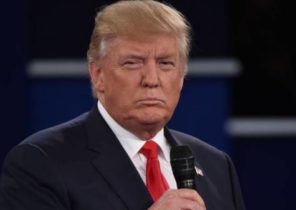
Today, a lot is said and written about the complicated relationship between Russia and the West — and not without reason. But while Russian President Vladimir Putin is playing games with the US and Europe and trying to save its vague Alliance with Syria and Iran, we should not forget about other countries that have a direct impact on the future of Russia. The main attention is paid to five States.
China
Let’s start with the obvious. Russia hoped that her turn to the East, in the direction of China will allow it to compensate for the investment and trade ties with the West, which it lost after the beginning of the Ukrainian crisis in 2014. According to some estimates, the sanctions imposed by the US and the EU against Russia, and Russia imposed counter-sanctions have cost around 1-1. 5% of GDP only for the first year. According to IMF forecasts, in the medium term, it could lose about 9%. And, although China really has agreed to Finance some of the Russian projects (in the first half of 2016, the volume of Chinese investment grew by 172%), it was not enough to compensate for the loss in growth and financing provoked by the Western sanctions. The situation is exacerbated by the fact that China did not recognize the legitimacy of the annexation of Crimea by Moscow, for Moscow had once hoped.
But therein lies the point: although China will continue to sign contracts with Moscow, it will not take part in the geopolitical games of Russia. China gladly expanded their business ties with Russia now that the Russians — because of the limitations of their capabilities — have to offer China more favorable terms and rates. But to establish a global status quo has been good for China, so Beijing wants this state of Affairs persisted for as long as possible. Russia wants the situation in the world changed. Moreover, China will continue to compete with Russia for influence, especially in Central Asia. Therefore, we should not expect that Russia and China will soon become best friends. They can generally never become.
Japan
Russia has been strengthening ties with Japan, partly to strengthen its position in relations with China, partly in the hope that Japanese investment in Russia will accelerate the transfer and adoption of Japanese technologies and experience in the Russian industry. Although in some areas this is already happening (especially in the energy sector and the automotive industry), the extent of these processes has not reached the level at which the Kremlin expected.
Considering the future of Russian-Japanese relations, the focus should be given to the history and geopolitics. Tokyo and Moscow continue to dispute the status of the Kuril Islands — group of Islands in the Pacific ocean, which are claimed by both countries. Russia and Japan still have not signed a peace Treaty, which officially put an end to the war between them. Don’t forget that Japan now find themselves in a rather difficult geopolitical situation in Asia: China’s assertiveness is growing every day, and the behavior of North Korea is becoming more aggressive and unpredictable. Russia is not able to help in solving these problems. As for the chaos in American politics at the moment, the us military is still in control of the situation in the region (in Japan there are 54 thousand American soldiers). The United States remains the main ally of Japan in the region. This is another reason why Russia is interested in a rapprochement with Japan.
Saudi Arabia
In Syria, Russia has shown that it is prepared to intervene where the US is still afraid to intervene. This makes Russia an important player in the region, more important than would allow of its economic and military power. (Russia takes the 12th place in the list of the largest economies in the world, and, although expenditure on their armed forces is in third place, its military budget is only one-tenth of the military budget of the United States.)
Although Saudi Arabia and Russia supported the opposing sides in the Syrian conflict, they still managed to band together to restrain the fall in world oil prices, which has dealt a serious blow to both countries. And the relationship between them has room for improvement: the crown Prince of Saudi Arabia Mohammed bin Salman (Mohammed bin Salman) has played a key role in the conclusion of the 10-million partnership between the Public investment Fund of Saudi Arabia and the Russian Fund for direct investment, and improvements in relations with Saudi Arabia helping Russia to implement its initiatives in the countries of the Persian Gulf. And though the Saudis may yet glad to see Donald trump in the White house, they have no guarantee that in the future the situation will develop in a favorable direction. Given all this, it is advantageous to have a choice.
Turkey
Russia and Turkey manage extremely colorful leaders, and both these countries are the main participants in the drama that is now unfolding in Syria. In November 2015, the Turkish air force shot down a Russian warplane violated the air border of Turkey. In response, Russia has imposed trade sanctions, but the parties quickly settled our differences after Turkish President Recep Tayyip Erdogan (Recep Tayyip Erdogan) has apologized for the incident. Later, after about a year, in Ankara former Turkish police officer shot and killed the Russian Ambassador.
Such events could lead to the outbreak of war. But until Erdogan hears criticism of the West against his government, Russia and Turkey will be much more incentive for cooperation. Currently these two countries are trying to run a gas pipeline “Turkish stream” to have the opportunity to supply Russian gas to Europe, Turkey is a NATO representative at the peace talks on Syria in Astana and Ankara happily avoids accusations of the West in strengthening of authoritarianism, establishing friendship with Moscow.
However, Erdogan and Putin have not yet come to a consensus about the role that President Bashar al-Assad should play in the future of Syria and the Syrian Kurdish territories will long remain a source of suspicion and distrust.
Venezuela
The last country in this list, tends to attract the least attention. Venezuela is going through a very difficult period, and its citizens daily come to the streets to protest against the government of Nicolas Maduro (Nicolas Maduro) and the lack of basic food and medicines. Given the fact that Venezuela owns the largest oil reserves in the world, it can be called astonishing collapse of one of the former centers of power in Latin America.
And here starts the most interesting. Venezuelan state oil company PDVSA owned energy company Citgo. In December, PDVSA received a loan from the Russian state oil company Rosneft, and in exchange, PDVSA has exposed a large proportion (49.9 percent) to Citgo as collateral.
If PDVSA will not be able to repay the loan — as is likely — “Rosneft” will receive this share, after which it is already easily able to acquire a controlling stake. In addition to strategic game aimed at the acquisition of quality oil assets at a low price, Putin is very much like the idea of owning one of the largest refineries in the United States — and it is his wish may come true.







